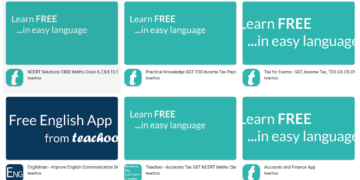Combining business with advocacy can be a challenging task for many, especially as it requires drive, creativity, and entrepreneurship to be successful. Many individuals have pulled this off, seeing the rise of the number of startups catering to one advocacy or another.
Individuals who have a disability, or those whose loved ones have disabilities, can enter the business world with their advocacy in mind. Mark Hamstra (n.d.) of CO by the US Chamber of Commerce noted that there has been a “larger trend of businesses waking up to the needs of the disability community.”
All kinds of businesses in different industries have emerged addressing the needs of people living with disabilities, which accounts for 26% of the adult population in the country, according to CDC (n.d.). This article tackles startup ideas for individuals looking to launch a business catering to individuals with special needs.
1. Online Store for Disability Aids
Inclusivity is one of the most compelling issues for individuals. Matters that would seem trifles for able-bodied people can have a massive impact on the quality of life of disabled individuals. Some examples of these are reaching the tops of shelves, entering establishments, and even drinking liquids.
Entrepreneurs looking for ways to help the disability community can take a look at the needs of disabled individuals around them, and develop a business plan based on their observation.
Those who live in cities with walkways friendly enough for mobility aids can look into selling rollators scooters, and other products that can help disabled people regain their independence through mobility. At the same time, entrepreneurs can advocate for safe spaces and safety modifications such as ramps, lifts, and handrails.
Making these products accessible online is also a huge step towards helping individuals with disabilities concerning mobility.
2. Toys for Children with Special Needs
Play is one of the most important aspects of a child’s development. However, a lot of educational and development toys cater to able-bodied children. An example of these are puzzles with small pieces, which children with mobility problems can have trouble using. It can also be a choking hazard.
According to Trisha Korioth (2018) of the American Academy of Pediatrics (AAP), toys that parents can play together with their children are great choices. Developing or distributing toys for all kinds of developmental ages and abilities can be a good way to launch a business focused on the special needs community.
Some ideas from the AAP include modified toys that minimize risks of injury, those that encourage interaction between parent and child, devices that can help develop speech and motor skills, and those that do not have choking hazards.
3. Apps for Assistance
Individuals with disabilities likely use mobile devices, even those with visual and hearing impairments. Manufacturers include a lot of accessibility features to help disabled people modify their user experience with a device.
Given these, entrepreneurs can help improve the situation by developing mobile applications that can assist disabled users. Take the app Be My Eyes, for example. It crowd-sources from sighted volunteers to help blind and low-vision users perform tasks and get overall assistance when needed.
Creating an app to assist people with special needs is a big step toward inclusivity. App development is rife with opportunities for developers who want to help. They can make an app that shows a map of the area where safety modifications are present. They can also add a feature that shows refueling and recharging stations for electronic mobility aids.
Apps for children with learning disabilities or developmental conditions can be a good step in the right direction.
4. Adult Day Care for People with Special Needs
The term special needs are not only for children but also for adults. Caring for special needs individuals can be challenging, especially for working family members. Care facilities help them ensure that their special needs loved ones are adequately cared for while they work.
It is important to remember that while there are care facilities for special needs children, there are limited options for adults with special needs. Providing an additional choice for these families can be a good business idea, while also offering a valuable service for these individuals.
This business requires hiring professional caregivers trained to handle special needs adults. It also calls for a dedicated space where they can feel safe, accommodated, and supported. Materials such as developmental entertainment, interactive activities, and comfortable furnishings should also be present. Entrepreneurs should make sure to work with professionals when choosing this path.
The Takeaway
Individuals with special needs deserve to live happily and comfortably. With the help of social entrepreneurs, special needs individuals can have access to more tools and services that enables them to achieve this. These business ideas can be a starting point for business-minded advocates toward helping these target consumers.
References:
- Centers for Disease Control and Prevention. (n.d.). Disability impacts all of us. Retrieved https://www.cdc.gov/ncbddd/disabilityandhealth/infographic-disability-impacts-all.html.
- Hamstra, M. (n.d.). Innovation abounds as businesses aim to better serve disability community. Retrieved from https://www.uschamber.com/co/good-company/launch-pad/businesses-serving-disabilities.
- Korioth, T. (2018). Toy-buying tips for children with special needs. Retrieved https://www.aappublications.org/news/2018/12/03/toyspp120318.




























